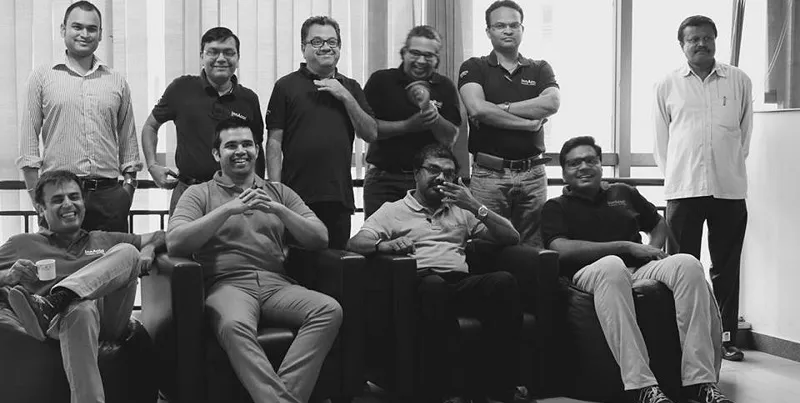WATCH: How incubator-turned-medtech company InnAccel is innovating for India’s needs
Medical innovation company InnAccel, with its subsidiaries Coeo Labs and Sattva Medtech, is building novel medical devices to serve the healthcare needs of India and emerging markets.
A report by FICCI and Assocham reveals that India imports 85 percent of its medical devices - a market worth $4.6 billion. In fact, a FICCI list identifies only one Indian medical device startup in the top 30 companies in the Medical Devices and Equipment Industry: YourStory’s Tech30 company Forus Healthcare, which has raised $13.4 million from Accel and Chiratae so far.
So, it is not surprising that a growing number of investors and companies, dominated by the likes of GE, Philips, and other MNCs, would want a share of this pie. Yet, surprisingly, for incubator-turned-medtech company InnAccel, which focuses on building novel medtech devices in the areas of Critical Care, ENT, and Maternal Care, that's not the core reason. For InnAccel, along with its subsidiaries Coeo Labs and Sattva Medtech, the emphasis is on building innovative medical devices to serve the healthcare needs of India and emerging markets.
Siraj Dhanani, CEO of InnAccel, says, “We started as an accelerator, got involved in the innovation ourselves, set up teams, and had subsidiaries. I think we figured out a path. One thing we’ve been consistent on is innovating for Indian needs, whether we do it as an incubator or as a company, and we’re staying on track with our mission to create 20 innovative technologies by 2020.”
He adds, “We are a medical technology company, but we are not creating versions of western products like cheaper ECG monitors. We are creating technology products for the clinical environment of India by identifying diseases that affect Indians and we have original IP on our products.”
Also read: The rise of Bugworks and their fight with Superbugs
The business of InnAccel
These three companies were once focused on two different business models. Coeo and Sattva built medtech devices, while InnAccel was an accelerator. But soon A Vijayarajan, CTO and Co-founder at InnAccel, and Siraj realised that rather than just accelerating startups, InnAccel could bring the best of networks to a larger entity.
In 2017, the duo took this idea to Nachiket Deval and Nitesh K Jangir of Coeo first, who were piloting their VAPCare product in a hospital and wanted to scale up its testing.
VAPCare is an intelligent, automated, closed-loop, secretion management system for ICU patients on long-term ventilation. The team claims that it is the first of its kind - a sensor-based, secretion management system - and can functionally replace an ICU nurse. The product is CE-certified, has a US patent, and is being piloted in 20 hospitals today, going on sale this quarter.

The InnAccel team
Similarly, Sattva Medtech Founders Vibhav Joshi, and Sumedh Kaulgud jumped at the proposal. Their product FetalLite is a non-invasive, portable, foetal-ECG-based foetal monitor with automatic detection of distress, and requires minimal skill to use. It would provide a definitive diagnosis during foetal distress with higher accuracy and reliability, and includes automated data analysis with alerts to eliminate subjective interpretation.
InnAccel has another product called Saans, which is a self-powered, neonatal transport CPAP (Continuous Positive Airway Pressure) solution, allowing safe transport to the NICU in all transport settings. Performance equal to non-portable, electronic CPAP devices has been established. A key innovation quotient is that Saans can be powered in multiple ways, including a manual setting, with minimal skill. It is built to provide newly born babies with respiration in areas where families cannot make it to large hospitals. According to the company, close to 160,000 newborn babies die because of the lack of respiratory apparatus at primary health centres.
With six products ready, InnAccel believes that the five years of R&D and hard work will finally pay off in commercial engagements with hospitals across the country.
“This year, we will be looking at raising $8 million to further enhance our marketing and distribution. We have a global strategy too because our products fit in Africa and Asia,” Siraj says.
Coming from an entrepreneurial background, Siraj sold his pharma analytics company PharmArc to IMS Health in 2012. His partner, Vijayarajan, also ran a healthcare startup before this.
Sunil Khurana, CEO of BPL Medical Technologies, says, “There is a medical device revolution waiting to happen in the country and many companies are thinking about make-in-India for India. There is a large role for startups and small companies to change Indian healthcare.”
The next time you read about InnAccel will probably be when it raises money. But, first it has to create a distribution system for its products, work with hospitals, and prove that there is a market for India-made products for Indian problems. An uphill task, but one must only see the products to believe in the idea.
Siraj says, “InAccel will be looking at globally commercialising our assets, with partnerships in regions outside India where required. We’ll be doing a lot of clinical trials and clinical development to establish the clinical concept, and we’re very optimistic. For example, top universities in the US want to do VAP production trials for VAPCare because even in the US, despite their low rates of VAP, it is still a top 10 killer. About 50,000 to 60,000 people die every year.”
Also read: What should medtech companies expect from the future?







